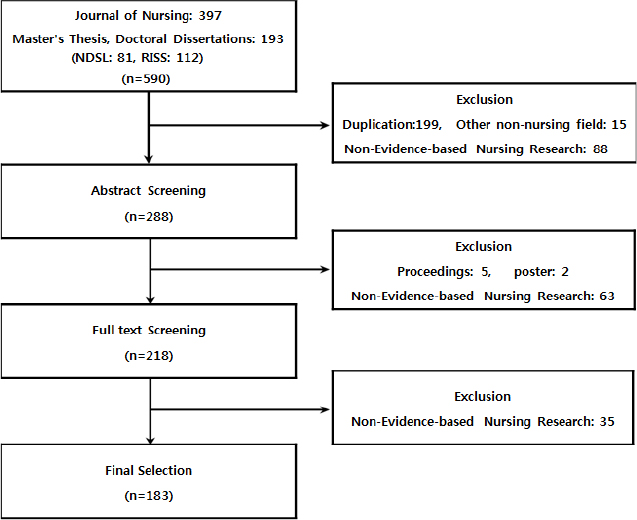1Department of Nursing, Mokpo National University, Korea.
2Mokpo Christian Hospital, Korea.
Copyright © 2017 Korean Academy of Nursing Administration
This is an open access article distributed under the terms of the Creative Commons Attribution Non-Commercial License (http://creativecommons.org/licenses/by-nc/3.0/), which permits unrestricted non-commercial use, distribution, and reproduction in any medium, provided the original work is properly cited.


*Only the top three were shown; IRB=Institutional review board; SR=Systematic review; RCT=Randomized controlled trial.
PICO=Patient/problem, intervention, comparison, outcome; COSI=Core+standard+ideal.
*The number in parentheses indicates the number of each domain; EBN=Evidence-based nursing.
*Duplicate count, †The number in parentheses indicates the number of each domain; EVD=External ventricular drainage, ADHD=Attention deficit hyperactivity disorder.
*Only the top three were shown; IRB=Institutional review board; SR=Systematic review; RCT=Randomized controlled trial.
PICO=Patient/problem, intervention, comparison, outcome; COSI=Core+standard+ideal.
*The number in parentheses indicates the number of each domain; EBN=Evidence-based nursing.
*Duplicate count, †The number in parentheses indicates the number of each domain; EVD=External ventricular drainage, ADHD=Attention deficit hyperactivity disorder.